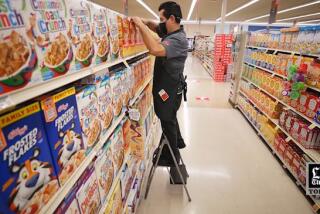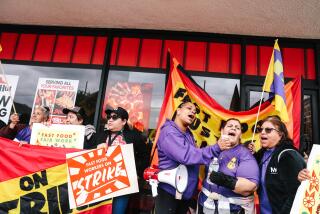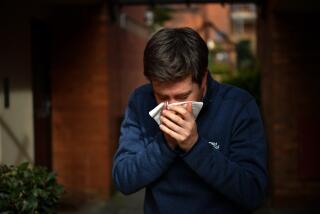A report finds many restaurant workers go to work sick, don’t get sick days and lack health insurance
A Chicago restaurant worker recalls a time he was sick but felt he had to work or else be fired: “It was an incredibly busy weekend,” he said, “at one point, one of my fellow workers sat me down because I was about to faint. The smell of grease and a long shift had taken their toll. I spent the next five days vomiting, expectorating phlegm and drinking a lot of orange juice. I had to force my co-workers to cover for me and work double shifts. They didn’t want to see me fired, and I didn’t want to lose my job. Later that week, two of my co-workers caught my virus as well as quite a few customers.”
Stories such as these are scattered throughout “Serving While Sick,” a report on the health, safety and healthcare of restaurant workers in the U.S., put out by the Restaurant Opportunities Centers United, a New York-based national restaurant workers’ organization that supports higher wages and better work conditions for restaurant employees. The report, released today, is based on 4,323 surveys of restaurant workers across the country, plus 240 employer interviews. The report also includes results from 500 more worker surveys and 20 additional interviews with employers on health insurance needs.
Regarding risks that restaurant workers encounter, 36.1% said it was unsafely hot in the kitchen, 25.2% said there were fire hazards in the restaurant and 38.1% said they had done something that put their own safety at risk. In addition, 66.6% of workers said they didn’t know worker compensation laws and 33% said they never underwent health and safety training provided by employers.
Among injuries sustained on the job, 45.8% of workers were burned, 49% were cut and 24.5% had contact with toxic chemicals. As for workplace practices, 38.1% said time pressures caused them to do something that put their own safety and health at risk, and 42.5% said that time constraints caused them do so something that may have harmed the health and safety of customers.
Most workers surveyed said taking time off when sick was difficult. Almost 90% of restaurant employees said they don’t get paid sick days, nearly 80% said they don’t get paid vacation days and about 64% said they’ve worked while sick.
Quotes from anonymous workers sprinkled throughout the report relay similar messages: Most workers don’t take time off when sick because they won’t get paid and they fear that too much time taken off will result in being fired.
The vast majority of workers, 89.7%, don’t get health insurance through their employer. About 62% don’t have any health insurance and about 23% had gone to the emergency room but weren’t able to pay the bill.
On the employer side, there was a general agreement that health insurance was essential for current employees and important for hiring and keeping potential workers.
It should come as no surprise that almost half of the restaurant workers surveyed were foreign-born. About 15% said they were undocumented workers.
The report’s policy recommendations included giving workers benefits such as paid sick days and healthcare, providing health and safety training, and improving health and safety conditions in restaurants.
-- Jeannine Stein / Los Angeles Times
More to Read
Inside the business of entertainment
The Wide Shot brings you news, analysis and insights on everything from streaming wars to production — and what it all means for the future.
You may occasionally receive promotional content from the Los Angeles Times.










